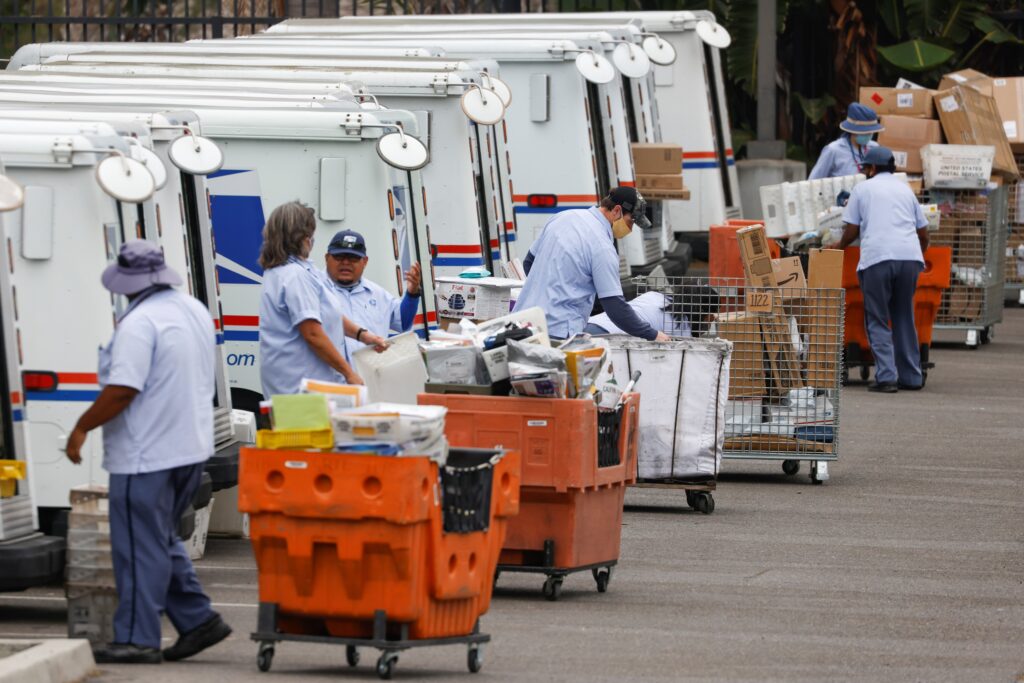
Supreme Court Expands Protections for Workers Seeking to Observe Holy Days, Sunday Rest
By: Our Sunday Visitor
“Religious freedom means nothing if it does not extend to the public square,” Cardinal Dolan said of the decision

WASHINGTON (OSV News) — The U.S. Supreme Court issued a unanimous decision June 29 in favor of a former postal worker who said he was denied a religious accommodation to observe Christian precepts on keeping holy the Lord’s Day by his former employer.
The case Groff v. DeJoy concerned Gerald Groff, an evangelical Christian and former U.S. Postal Service worker, who was denied an accommodation to observe his Sunday Sabbath by not taking Sunday shifts that resulted in the loss of his job.
“Religious freedom means nothing if it does not extend to the public square. And the public square is better off when religion is welcome there,” said Cardinal Timothy M. Dolan of New York, chairman of the U.S. Conference of Catholic Bishops’ (USCCB) Committee for Religious Liberty.
The Supreme Court’s ruling found that federal law requires workplaces to make appropriate accommodations for their employees’ religious practices unless those practices cannot be “reasonably” accommodated without “undue hardship.”
The court threw out its prior “de minimis” standard from its 1977 decision, Trans World Airlines v. Hardison, which had found that the “undue hardship” standard is met even at a minimal cost.
In Groff v. DeJoy, the court ruled an employer denying religious accommodations must show the burden of granting an accommodation would actually result in substantial increased costs.
Justice Samuel Alito wrote in his majority opinion that “diverse religious groups tell the Court that the ‘de minimis’ standard has been used to deny even minor accommodations.”
“Faced with an accommodation request like Groff’s, an employer must do more than conclude that forcing other employees to work overtime would constitute an undue hardship. Consideration of other options would also be necessary,” Alito wrote.
First Liberty Institute, which represented Groff, said the ruling strengthens legal protections for employees seeking religious accommodations, including schedule changes to observe holy days, is far-reaching and has an impact on employment rights at every workplace with at least 15 employees across the country.
“This is a landmark victory, not only for Gerald, but for every American. No American should be forced to choose between their faith and their job,” Kelly Shackelford, president, CEO, and chief counsel for First Liberty, said in a statement. “The Court’s decision today restores religious freedom to every American in the workplace. This decision will positively help millions and millions of Americans — those who work now and their children and grandchildren.”
Groff said in his own statement, “I am grateful to have had my case heard by the U.S. Supreme Court and that they have decided to uphold religious liberty. I hope this decision allows others to be able to maintain their convictions without living in fear of losing their jobs because of what they believe.”
Aaron Streett, partner at Baker Botts LLP, who argued Groff’s case before the high court, said,
“We are thrilled the Court today recognized that an America that values religious pluralism should respect the religious liberty rights of every employee.”
“Our nation has a long history of protecting its employees from being treated differently at work just because of their faith,” Streett said. “This decision is consistent with that history and is a tremendous win for all people of faith.”
Groff alleged in federal court that the U.S. Postal Service failed to provide him with reasonable accommodations for his religious practices. The 3rd U.S. Circuit Court of Appeals ruled in favor of the Postal Service, arguing it would face “undue hardship” by accommodating Groff’s request to excuse him from Sunday shifts.
The Supreme Court’s ruling vacates that finding and sends Groff’s case back to the lower court for reconsideration.
However, Rachel Laser, president and CEO of Americans United for Separation of Church and State, cast the high court’s ruling for the lower court to reconsider Groff’s case as a victory, stating they “live to fight another day.”
“We’re facing an aggressive movement working to weaponize religious freedom, but religious freedom must never be a license to harm others, and that remains true in the workplace,” Laser said. She argued the court simply “clarified,” but did not overturn, its standard for granting religious accommodations.
Laser said “the court’s ‘clarified’ standard correctly allows employers to continue to consider the burdens an employee’s requested accommodation could impose on co-workers.”
The Supreme Court’s decision has religious liberty implications for working Catholics. According to the Catechism of the Catholic Church, “On Sundays and other holy days of obligation, the faithful are to refrain from engaging in work or activities that hinder the worship owed to God, the joy proper to the Lord’s Day, the performance of the works of mercy, and the appropriate relaxation of mind and body.”
The Catholic Church also teaches this “requires a common effort” and both public authorities and employers are obliged to “ensure citizens a time intended for rest and divine worship.”

